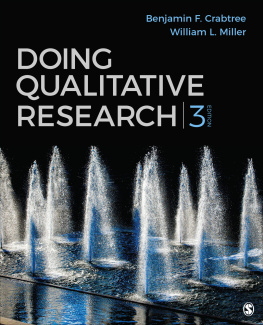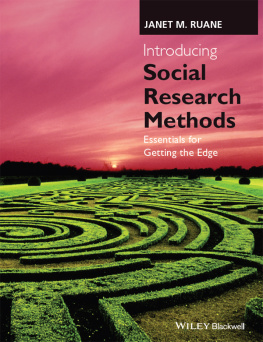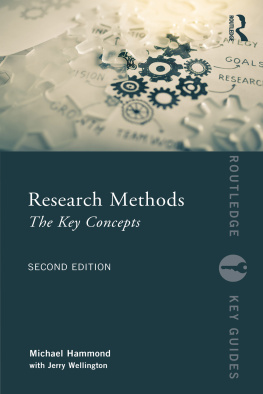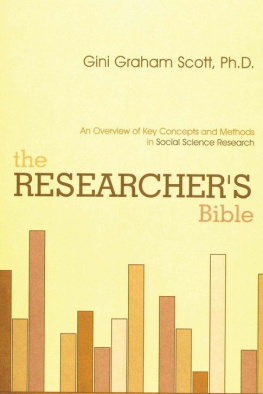Michael W. Passer - Research Methods : Concepts and Connections
Here you can read online Michael W. Passer - Research Methods : Concepts and Connections full text of the book (entire story) in english for free. Download pdf and epub, get meaning, cover and reviews about this ebook. year: 2021, publisher: Macmillan Learning, genre: Romance novel. Description of the work, (preface) as well as reviews are available. Best literature library LitArk.com created for fans of good reading and offers a wide selection of genres:
Romance novel
Science fiction
Adventure
Detective
Science
History
Home and family
Prose
Art
Politics
Computer
Non-fiction
Religion
Business
Children
Humor
Choose a favorite category and find really read worthwhile books. Enjoy immersion in the world of imagination, feel the emotions of the characters or learn something new for yourself, make an fascinating discovery.

- Book:Research Methods : Concepts and Connections
- Author:
- Publisher:Macmillan Learning
- Genre:
- Year:2021
- Rating:4 / 5
- Favourites:Add to favourites
- Your mark:
- 80
- 1
- 2
- 3
- 4
- 5
Research Methods : Concepts and Connections: summary, description and annotation
We offer to read an annotation, description, summary or preface (depends on what the author of the book "Research Methods : Concepts and Connections" wrote himself). If you haven't found the necessary information about the book — write in the comments, we will try to find it.
Research Methods : Concepts and Connections — read online for free the complete book (whole text) full work
Below is the text of the book, divided by pages. System saving the place of the last page read, allows you to conveniently read the book "Research Methods : Concepts and Connections" online for free, without having to search again every time where you left off. Put a bookmark, and you can go to the page where you finished reading at any time.
Font size:
Interval:
Bookmark:
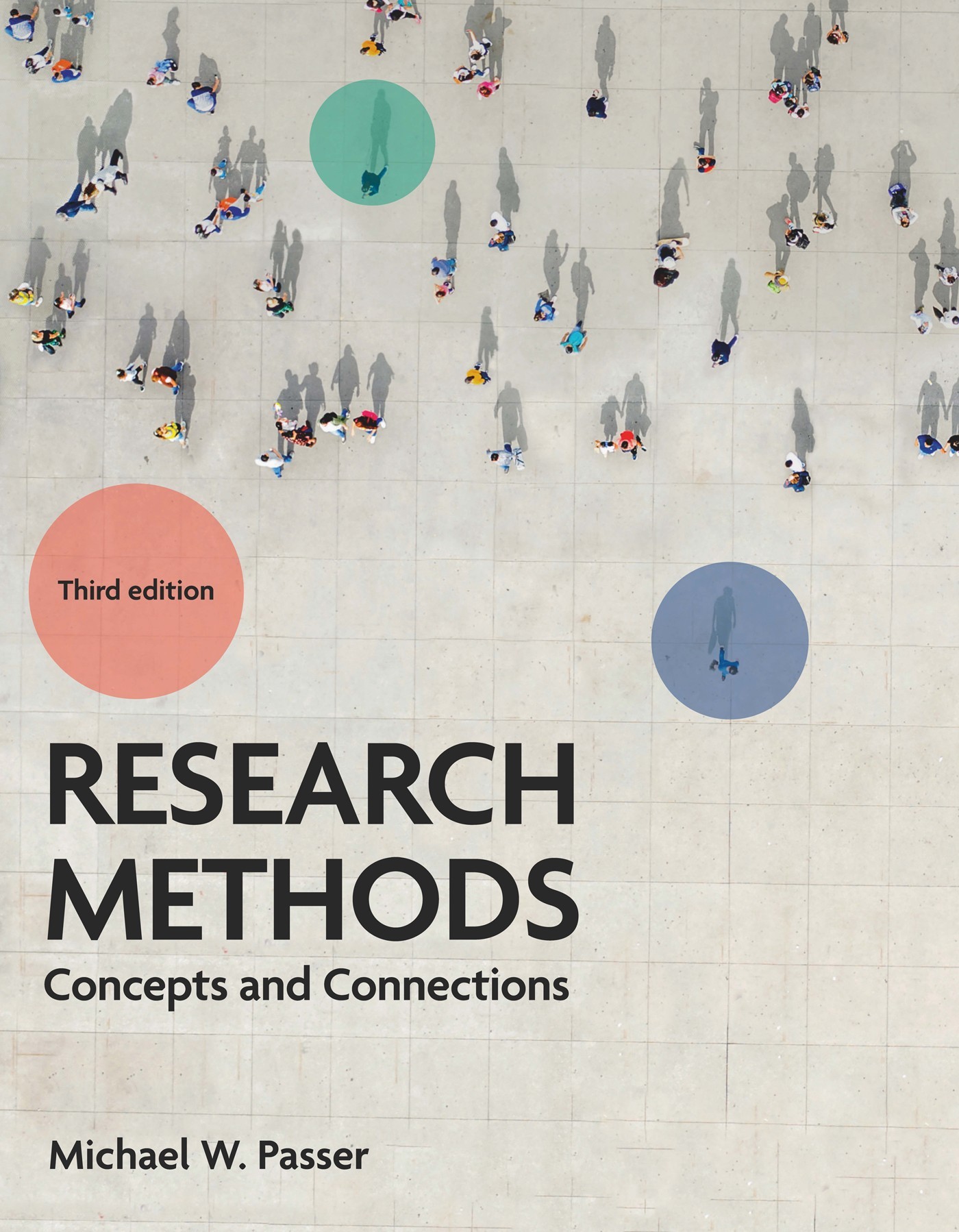
The front cover of the book shows the title at the top right followed by edition. The bottom right corner shows the authors name and logo of macmillan learning. The cover shows aerial view of several men and women walking. The spine of the book reads as follows. Passer, Research methods: concepts and connections; third edition; logo of worth publishers.
CONCEPTS AND CONNECTIONS
- THIRD EDITION
- Michael W. Passer
- University of Washington

Senior Vice President, Content Strategy: Charles Linsmeier
Program Director, Social Sciences: Shani Fisher
Executive Program Manager: Daniel DeBonis
Development Editor: Elsa Peterson
Assistant Editor: Anna Munroe
Executive Marketing Manager: Katherine Nurre
Marketing Assistant: Stephen Huang
Director of Media Editorial and Assessment, Social Sciences: Noel Hohnstine
Associate Media Editor: Stephanie Matamoros
Assistant Media Editor: Conner White
Lead Media Project Manager: Joseph Tomasso
Director, Content Management Enhancement: Tracey Kuehn
Senior Managing Editor: Lisa Kinne
Senior Content Project Manager: Won McIntosh
Full-Service Project Manager: Jogender Taneja, Lumina Datamatics, Inc.
Workflow Manager: Lisa McDowell
Production Supervisor: Robin Besofsky
Senior Photo Editor: Sheena Goldstein
Photo Researcher: Krystyna Borgen, Lumina Datamatics, Inc.
Director of Design, Content Management: Diana Blume
Design Services Manager: Natasha Wolfe
Design Manager, Cover: John Callahan
Interior Design: Lumina Datamatics, Inc.
Art Manager: Matthew McAdams
Illustrations: Lumina Datamatics, Inc.
Composition: Lumina Datamatics, Inc.
Cover Image: Orbon Alija/Getty Images
ISBN-13: 978-1-319-38289-6 (ePub)
2021, 2017, 2014 by Worth Publishers
All rights reserved.
1 2 3 4 5 6 25 24 23 22 21 20
Worth Publishers
One New York Plaza
Suite 4600
New York, NY 10004-1562
www.macmillanihe.com
To my wife Bev, for her endless love, support, and grace,
and to Harold Sigall, Harold Kelley, and Tara Scanlan, my mentors and friends, who nourished my interest in psychology and engaged me in the exciting enterprise of conducting psychological research.
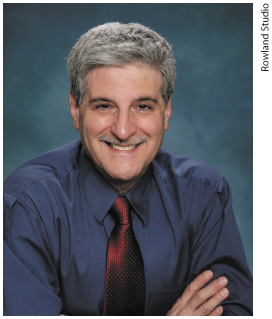
MICHAEL W. PASSER is Senior Lecturer in Psychology at the University of Washington, Seattle. Born and raised in Brooklyn, New York, he entered the University of Rochester fully expecting to be a physics or chemistry major, but he became hooked on psychological science after taking introductory psychology and a seminar course on the nature of the mind. He got his start as an undergraduate researcher under the mentorship of Dr. Harold Sigall, was a volunteer undergraduate introductory psychology teaching assistant, and received a Danforth Foundation Fellowship that partly funded his graduate studies and exposed him to highly enriching national conferences on college teaching.
Dr. Passer received his PhD in Psychology from UCLA, where he conducted laboratory research on attribution theory under the primary mentorship of Dr. Harold Kelley and gained several years of field research experience studying competitive stress, self-esteem, and attributional processes among boys and girls playing youth sports, mainly working with Dr. Tara Scanlan in the Department of Kinesiology. At the University of Washington (UW), he has conducted hypothesis-testing field research on competitive stress with youth sport participants, collaborated on several applied research projects in the field of industrial-organizational psychology, and for the past 30 years has been the faculty coordinator of UWs introductory psychology courses. In this role, he annually teaches courses in introductory psychology and research methods, developed and teaches a graduate course on the teaching of psychology, and is a UW Distinguished Teaching Award nominee. With his colleague Ronald Smith, he coauthored five editions of the introductory textbook Psychology: The Science of Mind and Behavior (McGraw-Hill), and has published more than 20 scientific articles and chapters, mostly on attribution theory and competitive stress.
Welcome to the research methods course and to the third edition of this textbook. I wrote this book for the same core reasons that I choose to teach the research methods course. First, I believe that regardless of a students major or intended career, a research methods course in psychology or other behavioral science is among the most important classes an undergraduate can take. The course content is tailor-made to sharpen students critical thinking skills and help students become savvier lifelong information consumers. The concepts they learn in this course should foster their ability and motivation to evaluate the soundness of conclusions and other claims they encounter, whether in scientific articles, textbooks, media reports, pseudoscientific writings, or advertisements.
The methods course can deepen students appreciation of the scientific method and scientific values by enhancing their understanding of methodological concepts, different types of research and research design, and ethical and other challenges confronting behavioral scientists. While this methodological foundation has obvious benefits for students who take more advanced science courses or intend to become researchers, it also prepares all students to be knowledgeable citizens and professionals in an increasingly science-oriented world. Even if few of our students plan to pursue an academic research career, many hope to become practitioners in clinical or counseling psychology, industrial-organizational psychology, school psychology, social work, medicine or nursing, physical therapy, law, or business. As professionals, they will need to draw upon knowledge of research methods as they stay current with the literature in their chosen field and evaluate its implications for the way they conduct their work.
My second reason for writing this book is that, to put it mildly, teaching the methods course is a formidable challenge. Years ago, when the opportunity to teach it first arose, I was thrilled and eagerly prepared. A few days before the start of classes I ran into a colleague who asked, What are you teaching? Research methods, I replied. Oh, he said as he rushed off, too bad! Surprised but undaunted, I gave his comment little thought. (After all, while in graduate school, I had volunteered to be a teaching assistant for the course, loved the experience, and had enthusiastic students.)
The next day I encountered another colleague who asked what course I was teaching. Methods, I said. Her reply? Too bad! This time I had to ask why. The course, she said, was a tough sell. Up to half the students werent psych majors and took it to satisfy a science distribution requirement. Among the psych majors, many were seniors who had kept putting the course off, and few students aspired to research careers. The bottom line, she said, was that the course content didnt intrinsically interest most students. I told her I already had heard about these issues and looked forward to the challenge of teaching such a diverse group.
Font size:
Interval:
Bookmark:
Similar books «Research Methods : Concepts and Connections»
Look at similar books to Research Methods : Concepts and Connections. We have selected literature similar in name and meaning in the hope of providing readers with more options to find new, interesting, not yet read works.
Discussion, reviews of the book Research Methods : Concepts and Connections and just readers' own opinions. Leave your comments, write what you think about the work, its meaning or the main characters. Specify what exactly you liked and what you didn't like, and why you think so.

